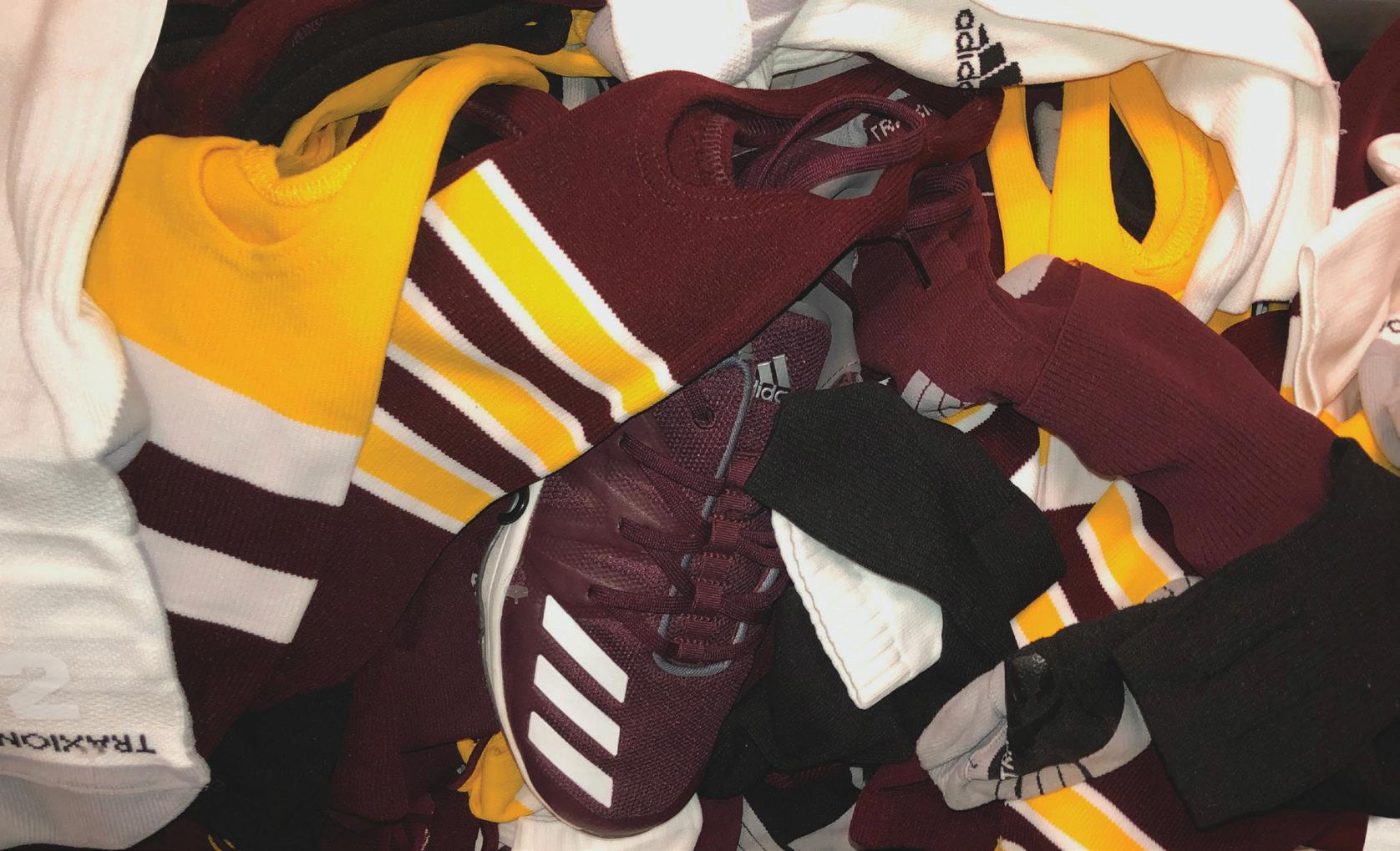Sports
Never ending spin cycle With spring and fall sports sharing a semester of games, equipment staff face an increased workload by Ike Everard photos by Matthew Keough
W
hen the Pac-12 canceled all conference athletic competitions in the fall, it was widely regarded as a necessary decision amid a pandemic. Athletes, coaches and fans came to terms with the fact their seasons would not follow a normal timeframe. While football eventually got its chance to compete, dozens of other Division I sports were either canceled or delayed to the spring semester. This means teams like volleyball, soccer and cross country are now occupying the same space on the calendar as traditional winter and spring sports like basketball and baseball. While the decision was hailed as the safe call for the athletes, who spend their entire
3
lives dedicated to competing at the collegiate level, it placed a heavy burden on an oft-forgotten piece of any athletic program: the equipment staff. Operating out of Desert Financial Arena, the ASU equipment staff is in charge of overseeing the tracking, cleaning, transport and setup of thousands of pieces of athletic gear. Now, with nearly twice as many sports taking place at once, and COVID-19 posing added regulations for a safe environment, their job is more difficult than ever. “The equipment staff hasn’t missed a day since last March,” assistant athletic director Douglas Tammaro said. “They’ve been in there doing the laundry, cleaning the locker rooms. They have had a non-stop workload.”
Trey Routier, assistant equipment operations coordinator who started working at ASU just before the pandemic brought things to a halt, is in charge of seven sports this semester. Track and field, cross country, softball, soccer, men’s basketball, wrestling and triathlon all fall under his responsibility. “Two weeks ago, I think I had an event every single day,” Routier said. “Whether it was a rescheduled basketball game, a soccer game, it was a lot of extra laundry.” But Routier is hesitant to complain. “One thing with an equipment manager's job is to deal with things as they come. With COVID and how things have been rescheduled, it’s been a little bit more (difficult) this year.” “We’re happy to have a job,” Tammaro said. “We understand things are going to be hard, but as long as we have an administration and coaches’ understanding and support, we’re going to do the best we can and get it done.” Routier recalled one particularly busy Thursday in February. Basketball, soccer and softball all had games, with specific challenges for each. “For me it was a lot of running around,” Routier said. After preparing the locker rooms at ASU’s Alberta B. Farrington Softball Stadium for the opening day matchup against BYU, Routier had to return to Desert Financial Arena to prep the basketball and soccer uniforms. “Then I just kind of play the waiting game until something happens. I think that day actually I had to run new goalie uniforms over to the [Sun Devil Stadium] field five minutes before they kicked off.” If it sounds hectic, that’s because it is. Routier moved to Arizona last year from California. After working as a student equipment manager during his undergrad at Virginia Tech, plus years with the U.S. Women’s Soccer team and at the University of Redlands, he’s picked up a few tricks to deal with the demands of the job. “A good, deep breath definitely helps settle the nerves a little bit,” Routier said.



